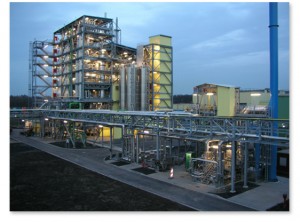Lux Research expects the bio-based materials and chemicals industry to attract $974 million in investment this year, a 28% increase over 2013, driven mostly by later-stage funding rounds, according to a recent report. Replacing petroleum-based feedstocks with renewable feedstocks in chemicals and materials production will reduce CO2 and other emissions related to climate change.
“Over the last two years, funding for bio-based materials and chemicals has shifted decisively toward later-stage rounds, reflecting the growing maturing of the industry and the shift from R&D to production,” said Meraldo Antonio, Lux Research Associate and the lead author of the report.
By looking at the VC, corporate, IPO and M&A activity in the space, Lux Research analysts found that North American companies attracted the majority of investment, representing 87 percent, or $2.2 billion, of total funding over the past three years. Fermentation technology attracted the greatest amount of funding, pulling in $3 billion since 2002, and hitting a peak of $475.6 million in 2011.
Leading private companies in this space include: Gevo, Rivertop Renewables, Zeachem, Myriant Technologies, as well as several companies that made this year’s Global Cleantech 100 list, including: Genomatica, Green Biologics, Enerkem, OPX Biotechnologies, and Verdezyne.
Genomatica, which develops green chemicals from renewable feedstocks such as sugar and garbage, also won the Global Cleantech 100 Continued Excellence award for being the highest ranked company on the list three years in a row, and has raised over $113 million in funding to date. The company is gaining market traction, and has built out large scale factories for the production of BDO, an intermediate chemical used in everyday products including athletic apparel, running shoes, electronics and automotive applications.

Lanxess BDO Factory
Recent venture fundings include: Rivertop Renewables, which raised $26 million in Series B funding in April, Genomatica, which raised $6.8 million in debt in March, and Verdezyne, which raised $48 million in venture capital funding in March. And early-stage organic chemicals startup, Waste2Chemical, spun out of Wageningen University in the Netherlands, received Series A funding in April, 2013 from Horizon3 and Dutch Greentech Fund.
Lux also saw more activity from corporate investors compared to last year with M&A deals also on the rise—including Stora Enso’s acquisition of Virdia, Renewable Energy Group’s purchase of LS9, and Cereplast’s cheap acquisition of Trellis Earth.
The Lux Research report follows on the heels of a U.S. Department of Agriculture’s (USDA) report in July on the opportunities and expectations for America’s bio-based economy. A more comprehensive study will be released in a few months by the USDA’s BioPreferred program, which works to increase the purchase and use of designated bio-based products by federal agencies through a preferred procurement initiative. One report in the study concludes that there is a potential to produce two-thirds of the total volume of chemicals from bio-based materials, representing over 50,000 products, a $1 trillion annual global market.
According to a USDA-Nexant report published in January, the renewable chemical market will potentially add $775 million of value per year with capital investment totaling $2.4 billion by 2017. By 2022, the value added potential is estimated at $3 billion per year with $6 billion capital.